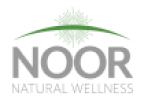The 8 Best Vitamins for Women Over 50
Jun 07, 2020
As we get older, our everyday habits, social surroundings and our outlook on life begin to change and mature. The aging process can seem scary for some but in truth, we all possess the ability to age gracefully with the right attitude, exercise, and nutritional requirements.
It is very important to begin incorporating key supplements as we get older to avoid common cognitive, bone, and eye problems that sometimes come with aging. Vitamins help deliver key nutrients that will nourish body systems and allow us to maintain optimal health while preventing common age-related illnesses. Below is a highly recommended list of vitamins for women over 50.
The top 8 vitamins for women over 50
1. Probiotics
Probiotics are live bacteria that keep our immune systems in check and our microbiome (inner biological environment) healthy. They are necessary for regular bowel movements which help rid the body of toxins and also assists in warding off digestive ailments. Some over the counter drugs alter our microbiome which can leave us more susceptible to sickness and infection. Probiotic supplementation will replenish what was lost and keep the body’s internal systems balanced. There are a plethora of strains and bacterial counts so talk with your pharmacist about the right dosage for you.
2. Multivitamin
Taking a daily multivitamin should always be a constant in one’s supplementation regimen. They ensure your body is getting the recommended daily allowance, which you may not have received enough of throughout the day. Vitamin A helps maintain eye health, B vitamins protect the nervous system and vitamin E protects the skin and aids in wound healing.
Every vitamin and mineral in a multi-serve its purpose and helps maintain overall health. women's vitamins are gender-specific and offer a more nutrient targeted form of multivitamin that also yields great results.
3. Fiber
Fiber is great in both its soluble and insoluble forms. It helps prevent heart disease by lowering cholesterol levels, which is known to increase during the beginning stages of menopause. It also balances blood sugar levels which assist in weight loss and detoxifying the body. Fiber is crucial for maintaining regular bowel movements and keeping toxic build-up at bay.
4. Calcium
Calcium is the most abundant mineral found in the body with 98% found in the bone. During menopause, the parathyroid hormone causes calcium to be removed from the bone. This can result in osteoporosis if supplementation is not in place.
An article from the US National Library of Medicine speaks on the importance of Calcium and Vitamin D in the maintenance of bone health and the prevention of Osteoporosis.
5. Vitamin D-3
Vitamin D-3 is necessary for the absorption of calcium and phosphorus, which is required in bone formation. D-3 is also involved in blood cell production, the regulation of glucose levels and enhances the immune system. While we do not always have the opportunity to absorb Vitamin D from Sunlight, it can be taken at 1000 IU daily in liquid or pill form. It is also found in egg yolk, butter, and fortified milk.
6. Hydrolyzed Collagen
When one thinks of Collagen, the first thing that comes to mind is replenishing the skin’s elasticity and keeping fine lines and wrinkles at bay. Collagen formation depletes as we get older which makes supplementation great for maintaining healthy, hydrated skin. Fortunately, this protein has many more important functions.
Collagen is a major component of the bone and can help prevent bone loss and related diseases like osteoporosis. Collagen also helps prevent and reduce joint pain as it maintains the integrity of the cartilage in between the joints, which can help prevent osteoarthritis. Hydrolyzed collagen is the best form of supplementation as it has already been broken down, making it easier for the body to absorb in powder, liquid, or capsule form.
7. Vitamin C
Vitamin C is an antioxidant that gives it an edge in its beneficial functions. It acts as a scavenger and fights off free radical damage that can cause physical signs of aging, and other degenerative diseases. It has shown protective effects against heavy metal exposure, pesticides, and food additives such as nitrates which have been often associated with Cancer.
It wards off infection by maintaining white blood cell production and aids in healing wounds. Vitamin C is also necessary for the formation of collagen, which makes it an important component in the health of one’s skin, ligament, and bones.
8. Omega 3
This healthy fat also known as an essential fatty acid contains EPA, a powerful anti-inflammatory that can help wards off systemic inflammatory diseases. Omega 3 also contains DHA, which is a brain-enhancing component that helps prevent dementia, maintain cognitive function, memory, and alertness.
A study written by the BMJ medical journal showed findings of the supplementation of seafood rich in Omega 3, contributed to a higher likelihood of healthier aging. Omega 3 is not produced in the body but can be acquired through supplementation or seafood, avocados, and nuts.
Final thoughts
Celebrating milestones, spending time with the grandchildren, and enjoying your retirement is the most gratifying when we can enjoy these things with sound health. The aging process doesn’t have to be a scary one, we have the capacity to incorporate key vitamins, whole foods, and the right attitude that will allow us to age gracefully and in style.



